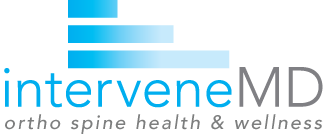Office-Based Injections More Affordable
It’s no secret that hospitals have been aggressively purchasing physician medical practices over the past 5 years.

One reason for this is that hospital administrators have found new sources of revenue to support their large overhead. Much of this revenue is in the form of facility fees and subtle changes in the way services are billed to you and your insurance.
Hospital monopolies
According to the Center for Studying Health System Change, a non-partisan think tank that studies the healthcare industry, hospital acquisition of physician practices has led to higher prices. So, unfortunately, these hospital monopolies are driving up medical costs rather than the other way around, making healthcare less affordable than ever for the average American family.
For example, last spring the Denver Post reported on a patient who received two heart stress tests performed by the same cardiologist, before and after that physician was purchased by a local hospital. The fee soared from $2,100 to over $8,000. This is due to something hospitals call a “facility fee”, and it can add hundreds (if not thousands) of dollars to your medical bill. And you thought the Affordable Care Act was supposed to save taxpayers money.
Hospitals driving up medical costs?
And it’s not just procedures that are more expensive, it’s regular office visits too. In March 2013, a report by the Medicare Payment Advisory Commission (MedPAC), an independent Congressional panel that oversees Medicare, confirmed that an office visit with a physician in a hospital outpatient department was reimbursed 80% higher than the same visit performed in a physician’s office. Why the difference? Well, once a physician’s practice is purchased by a hospital, all services provided by that physician are billed under the hospital’s umbrella. So even though you may see that physician in what seems like the same private office setting you have always used, the visit is actually billed to your insurance (and Medicare) as being provided in a Hospital Out Patient Department (OPD). This subtle billing difference results in higher reimbursements for providing the same service. The MedPAC report stated “that care is being shifted from a lower to a higher cost site of care without any identifiable improvement in quality.”
The numbers are staggering. In 2011, for E/M services (evaluation and management visits) and heart echocardiograms alone, Medicare paid hospitals $1.5 billion more than if the same services had been performed in a physician’s office.
The argument in favor of these practice acquisitions is that the medical care will be more efficient. One of the primary areas of improved efficiency is reported to be in reducing the chances that a patient will be readmitted to the hospital within 30 days of discharge. So in some cases hospital care has become more efficient. But in 2012, the Robert Wood Johnson Foundation released their Synthesis Project which found that physician-hospital consolidation has not led to either improved quality or reduced costs.
Making health care more affordable
If you have a high insurance deductible, an insurance policy that limits the number of nerve blocks or epidural steroid injections you can get per year, or you don’t have insurance at all, we can save you $500-1000. Getting your nerve block or epidural steroid injection in our office gives you access to the same high quality service without costing you (and our country) an arm and a leg.
Supporting the Lowcountry for Over 20 Years
"It is my mission to offer our patients the most current treatments available for the management of acute and chronic pain."


